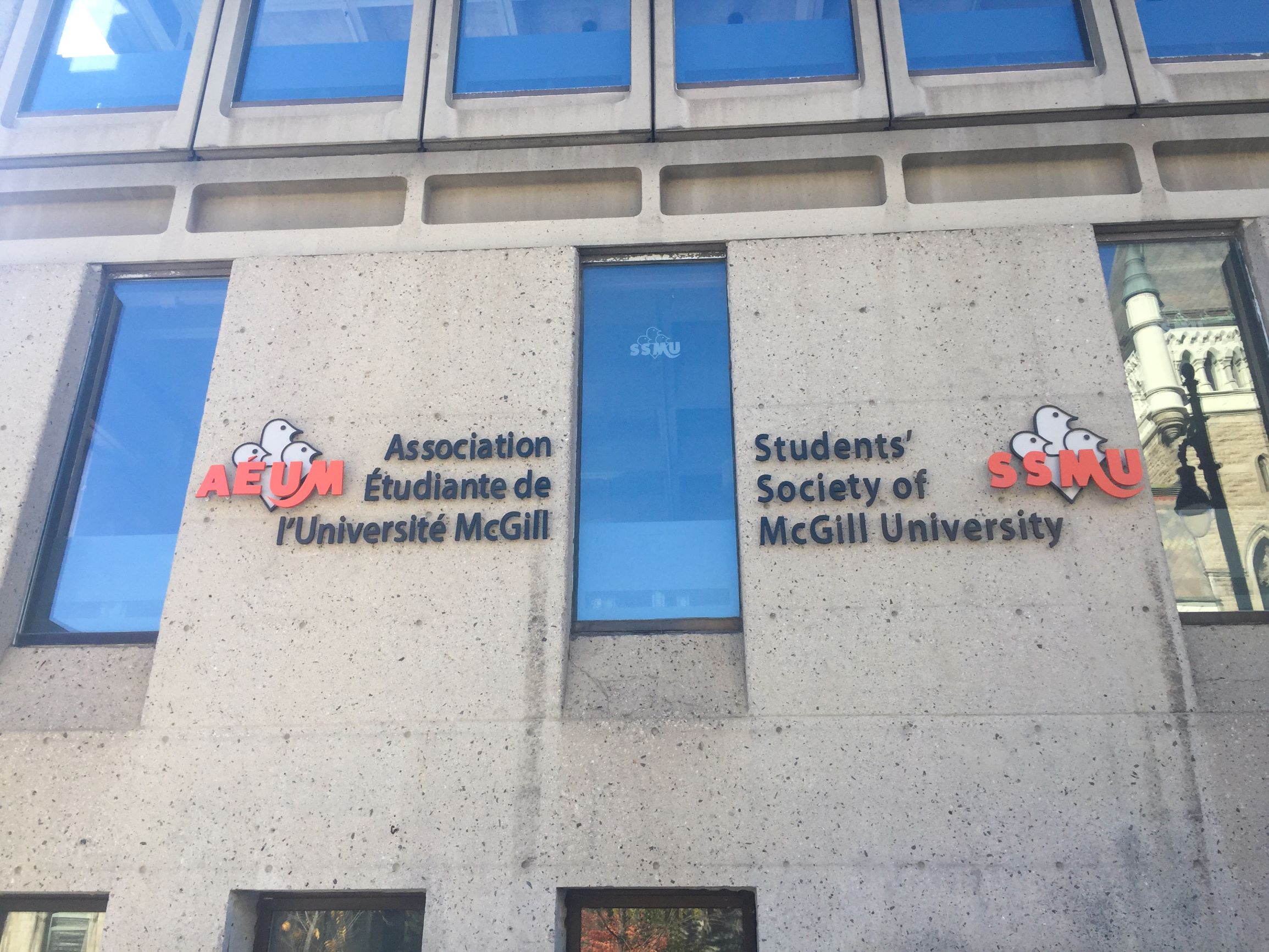The Students’ Society of McGill University (SSMU) and the Commission des Affaires Francophones (CAF), released the Report on Francophone Academic Rights on March 26. The report, based on a survey conducted in April 2020, presented the impediments students face in submitting work in French and set forth recommendations to improve the application of this academic right.
Compiled under the supervision of 2019-2020 SSMU Vice-President (VP) of University Affairs (UA) Madeline Wilson, current VP UA Brooklyn Frizzle, and CAF commissioner Juliette Chesnel, the report focusses on the application of Article 19 of the Charter of Student Rights’—an academic right that permits students to submit work in French and have it evaluated by a French speaker.
Feedback from the report’s survey data demonstrated that 50 per cent of francophone students have not invoked their right to submit work in French during their time at McGill, despite the fact that 70 per cent of respondents said their writing skills were stronger in French than in English.
Although professors are required to list students’ right to submit graded course work in French in their course syllabi, the report found that a minority did not. Of professors who included the academic right in their outline, 48 per cent said they received work in French over the past five years, compared to 20 per cent of professors who did not include the right.
Some professors left anonymous comments in the survey that they had dissuaded students from handing in work written in French, citing the development of students’ English writing skills as reason for their discouragement. Juliette Chesnel, U3 Arts and CAF Commissioner, said that students should feel free to exercise their academic rights—without pressure from their professors to submit work in English for the sake of language improvement.
“At the end of the day it is not a valid reason,” Chesnel said. “The students know what is best for them and what they are more comfortable doing, so making sure they do not have a negative narrative from the professor is very important.”
Survey feedback also showed that many students opted not to submit assignments in French due to uncertainty about the grading process. Currently, when students submit work in French to a non-French speaking instructor, their work is passed to a French speaker for evaluation. Andylath Dijma, U1 Management, said she is reluctant to submit work in French because there is no guarantee that the French grader has knowledge specific to the topic of the assignment.
“I am hesitant to write in French because I do not know how I will be graded,” Djima said. “In English, I kind of know […], but in French I do not. Especially if the person grading does not know the subject, […] I would rather just write in English.”
Some francophone students, including Arthur Courtois, U3 Arts, claim that submitting work in French is more complicated because the language of instruction at McGill is in English. Courtois said that he stopped submitting work in French because many subject-specific terms and concepts are only explored in English.
“After a while I just stopped [submitting assignments in French],” Courtois said. “Oftentimes […] the specific terms and definitions are in English, and translating is a lot of extra work [….] It becomes easier to write in English.”
The SSMU report also contained recommendations for improving the application of Article 19. One such recommendation suggested ensuring that professors list the Article 19 right on all applicable course outlines, provide subject-specific terms and concepts in French alongside English, and supply French evaluation schemes.
Incoming VP UA Claire Downie said she plans to use campaigns such as SSMU’s Know Your Rights to bring more awareness to francophone academic rights next year.
“I would love to work with SSMU’s communications department to ensure that the campaign reaches as wide an audience as possible,” Downie wrote to The McGill Tribune. “I also think outreach with the First Year Council could be a positive relationship, because students should begin their McGill experience knowing [about] all their academic rights.”
A previous version of this article incorrectly stated that a significant number of McGill professors did not list the right to submit in French on their syllabus. In reality, a minority of professors failed to include this right on their syllabus. The Tribune regrets this error.









